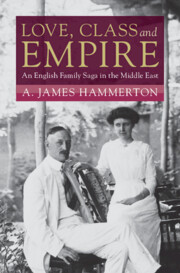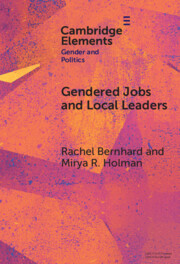Refine search
Actions for selected content:
278 results
Sip, don’t suck: defining ‘Greek’ and ‘male’ via beer, wine and sex
-
- Journal:
- The Journal of Hellenic Studies , First View
- Published online by Cambridge University Press:
- 15 August 2025, pp. 1-16
-
- Article
-
- You have access
- Open access
- HTML
- Export citation

Love, Class and Empire
- An English Family Saga in the Middle East
-
- Published online:
- 10 July 2025
- Print publication:
- 04 September 2025
Chapter 9 - Women
- from Part II - Social Contexts
-
-
- Book:
- Sean O'Casey in Context
- Published online:
- 23 June 2025
- Print publication:
- 10 July 2025, pp 100-109
-
- Chapter
- Export citation
Chapter 4 - The Second World War
- from Part I - Key Places and Events
-
-
- Book:
- Sean O'Casey in Context
- Published online:
- 23 June 2025
- Print publication:
- 10 July 2025, pp 45-56
-
- Chapter
- Export citation
Chapter 6 - Of “Manners and Rituals”
- from Part I - Influences and Inspirations
-
-
- Book:
- August Wilson in Context
- Published online:
- 09 June 2025
- Print publication:
- 26 June 2025, pp 77-86
-
- Chapter
- Export citation
Embodying Unemployment: Ableism, Fitness, and Unemployed Men’s Bodies in 1930s Britain
-
- Journal:
- International Labor and Working-Class History , First View
- Published online by Cambridge University Press:
- 20 June 2025, pp. 1-22
-
- Article
-
- You have access
- Open access
- HTML
- Export citation

A Black Army
- Segregation and the US Military at Fort Huachuca, Arizona, 1941–1945
-
- Published online:
- 16 June 2025
- Print publication:
- 17 July 2025
Feminism in Becoming: Considerations on the Man Question and the Future of Feministing
-
- Journal:
- Canadian Journal of Political Science/Revue canadienne de science politique / Volume 58 / Issue 1 / March 2025
- Published online by Cambridge University Press:
- 21 May 2025, pp. 196-218
-
- Article
-
- You have access
- Open access
- HTML
- Export citation
10 - Language, Manipulation, and Online Radicalisation
- from III - The Dark Side of Persuasion
-
-
- Book:
- Manipulation, Influence and Deception
- Published online:
- 10 June 2025
- Print publication:
- 24 April 2025, pp 196-220
-
- Chapter
- Export citation
Improving mental health practice with boys and men: core challenges and guidance for clinicians
-
- Journal:
- BJPsych Advances , FirstView
- Published online by Cambridge University Press:
- 16 April 2025, pp. 1-3
-
- Article
- Export citation
Life in Nature Documentaries: Narrating Counterurbanization and Masculinity in Post-Developmental South Korea
-
- Journal:
- Asia-Pacific Journal / Volume 22 / Issue 9 / September 2024
- Published online by Cambridge University Press:
- 14 March 2025, e1
-
- Article
-
- You have access
- Open access
- Export citation

Gendered Jobs and Local Leaders
- Women, Work, and the Pipeline to Local Political Office
-
- Published online:
- 07 February 2025
- Print publication:
- 06 March 2025
-
- Element
-
- You have access
- Open access
- HTML
- Export citation
4 - When the Hearth Was at Once Warm and Cold
-
- Book:
- Geographies of Gender
- Published online:
- 09 January 2025
- Print publication:
- 23 January 2025, pp 150-184
-
- Chapter
- Export citation
Chapter 5 - Metropolitan Pleasures and Grievances
-
- Book:
- The Art of Walking in London
- Published online:
- 19 December 2024
- Print publication:
- 23 January 2025, pp 191-234
-
- Chapter
- Export citation
3 - Becoming a Taiwanese Man
-
- Book:
- Geographies of Gender
- Published online:
- 09 January 2025
- Print publication:
- 23 January 2025, pp 115-149
-
- Chapter
- Export citation
Chapter 22 - Masculinity and the Labouring Body
- from Part V - Gender, Sexuality, and the Body
-
-
- Book:
- Gerard Manley Hopkins in Context
- Published online:
- 16 January 2025
- Print publication:
- 16 January 2025, pp 193-201
-
- Chapter
- Export citation
Chapter 21 - Queerness and Homosociality
- from Part V - Gender, Sexuality, and the Body
-
-
- Book:
- Gerard Manley Hopkins in Context
- Published online:
- 16 January 2025
- Print publication:
- 16 January 2025, pp 185-192
-
- Chapter
- Export citation
Indonesian Tourism Workers on Volcanoes and Geotourism's Colonial Origins: Making a Subaltern History Visible
-
- Journal:
- Itinerario / Volume 48 / Issue 3 / December 2024
- Published online by Cambridge University Press:
- 14 January 2025, pp. 268-293
-
- Article
-
- You have access
- Open access
- HTML
- Export citation
Children’s games and global politics: Masculinity, militarism, and the warrior hero
-
- Journal:
- Review of International Studies , First View
- Published online by Cambridge University Press:
- 19 December 2024, pp. 1-18
-
- Article
-
- You have access
- Open access
- HTML
- Export citation
5 - Curb Your Enthusiasm
-
- Book:
- Young and Restless in China
- Published online:
- 02 November 2024
- Print publication:
- 05 December 2024, pp 91-109
-
- Chapter
- Export citation
